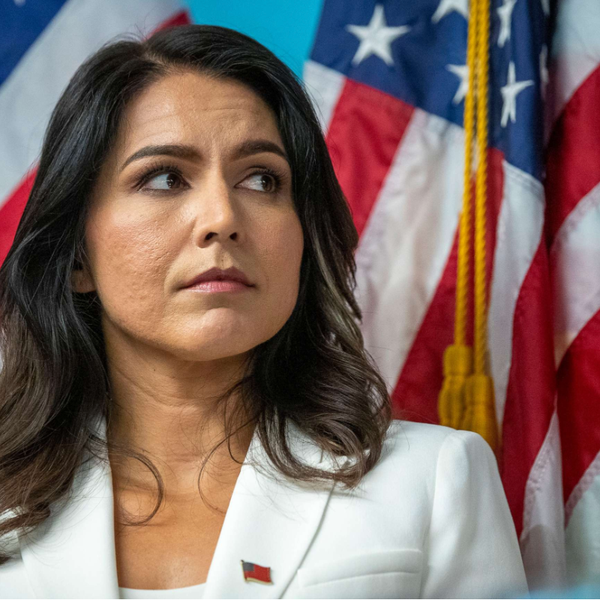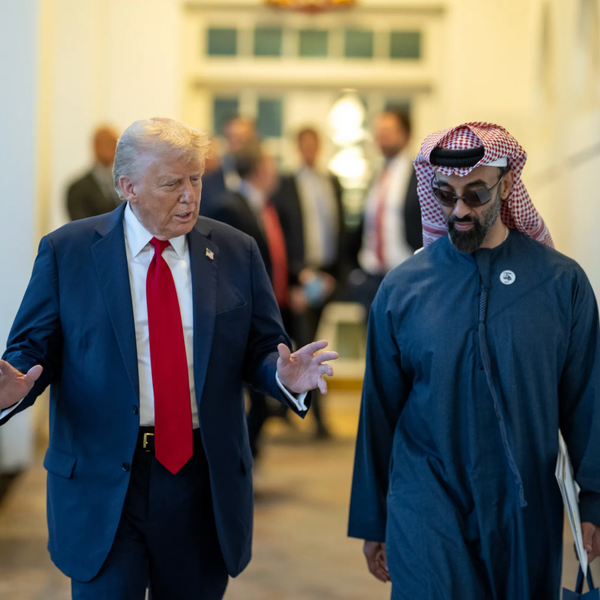How Democratic Institutions Can Resist Trump’s Final Barrage Of Lies

This article was produced by Voting Booth, a project of the Independent Media Institute.
As President Trump jetted to 17 rallies mostly at regional airports in swing states in his sprint to Election Day, he has campaigned as he has governed. Trump reeled off countless untruths about every topic—perhaps most importantly, about voting and counting votes this November.
At a rally in Philadelphia, Pennsylvania, where 437,000 voters had requested absentee ballots and nearly 80 percent have been returned as of November 2, and the rest could arrive in the mail as late as Friday and still be counted if postmarked by Election Day, Trump smeared the Democratic-led city government. "Are they going to mysteriously find more ballots" after polls close, he said. "Strange things have been known to happen, especially in Philadelphia."
At a rally in Dubuque, Iowa, Trump said, "We should know the result of the election on Nov. 3, the evening of Nov. 3," even though it routinely took some states days or weeks to certify their election results—before 2020's record volume of absentee ballots. Still, he erroneously said, "That's the way it's been, and that's the way it should be."
And at a North Carolina rally, Trump told reporters on the sidelines that it didn't matter what the preliminary vote counts were—even though they could come late on Tuesday night or after midnight on Wednesday for two key swing states, Florida and Arizona. "As soon as that election's over, we're going in with our lawyers," Trump said.
The big question looming over these assertions is not whether a record number of voters will be heard after voting ends on November 3, but whether America's electoral system—its state-run elections, state and federal courts, and elected leadership—can or will stand up to Trump. Bluntly, if Trump has shown he will stop at nothing to retain power, will nothing stop him?
"It happened in Kentucky and Mississippi and Florida and Pennsylvania, over hundreds of rallies in one arena after another," wrote Carl Hoffman in Liar's Circus, a new book profiling Trump's rallies and his most loyal followers. "Every few days he would dangle [introduce] the politicians who could impeach him or threaten him in front of that hungry mob. If you wondered why no senator would challenge him, why no one would speak up, there it was."
As the 2020 election moves from casting ballots to counting votes, well-founded fears are overshadowing what should otherwise be celebrated as pro-democracy achievements. More voters than ever have sought to be heard despite a pandemic. And election officials have made historic efforts to restructure the process to serve voters and accommodate this surge.
It is not just routine election jitters behind the current doubts. If a democracy is based more on a nation of laws than on a battle of wills, the simmering worry is that the rules of elections will not hold—as Trump repeatedly asserts that he is above these laws, unless or until he wins.
The way Trump's narrative moves from the podium at rallies and from his late-night tweets into the electoral arena is via disinformation from his campaign and Republican publicists, and via the lawsuits that they have filed—many of which echo the same false or novel assertions.
There is no shortage of caustic rhetoric, starting with Trump's false claim that the vote counting should stop on Tuesday night. Trump has also implied that federal agents would intervene on his behalf. The reality is that states, not the federal government, run elections. Their long-set procedures end when the tasks are done.
Moreover, the federal Justice Department cannot step in and reject or seize ballots as they are being counted. If anything, ever since the Supreme Court gutted the DOJ's main enforcement tools in a 2013 decision, the DOJ has less power than it once had to intervene in elections. But these kinds of details are not widely known and get overshadowed by Trump's propaganda.
What unfolds in court is another matter. Because the law never mirrors reality neatly, Trump's campaign and Republican Party lawyers have conjured arguments that claim to invoke new and purportedly serious constitutional issues even though their purpose is to disqualify Democratic voting blocs. Behind these strategies is a hope that federal appellate courts, and possibly the Supreme Court, will step in and make seemingly narrow rulings that can flip swing states.
There have been several themes in the litigation thus far. Echoing the Supreme Court's primary holding in Bush v. Gore, which awarded the presidency in 2000 to Republican George W. Bush, was the standard that like ballots have to be treated in a like manner. Where that ideal collides with reality is local election jurisdictions in many states—usually at the county level—do not have the same voting machinery, ballot-processing protocols, poll worker training, etc. Thus, Trump's lawyers have filed many lawsuits asserting "equal protection" violations. Voters will shortly see if these claims will impede processing ballots and counting votes.
The next big claim is an ideological libertarian assertion cloaked as a constitutional law issue—that the U.S. Constitution only empowers state legislatures to set the rules for elections with federal candidates. This new notion has roiled the rules surrounding the last date that an absentee ballot can be received in the mail by local election officials and still count.
At the end of October, federal appeals courts and a majority of conservative justices on the U.S. Supreme Court have cited this novel doctrine in cases involving the ballot-return deadlines in Wisconsin, Pennsylvania, North Carolina and Minnesota. (In Pennsylvania and Minnesota, ballots arriving after Tuesday are being segregated, where legal challenges are expected. In North Carolina, the state election board has not taken that proactive step.)
This libertarian view of independent state legislative authority is also the argument cited by the Texas GOP to try to disqualify more than 100,000 ballots in Harris County—where Houston is located—cast at new drive-through voting centers. (That case began its federal court review on Monday after Texas' Supreme Court would not disqualify the ballots. A district court rejected the GOP's claims, but it is likely to be appealed. At issue there is not just the presidency, but also several Texas legislative seats that may end the GOP's long-held state political majority.)
There's another batch of Republican lawsuits that are not just fishing expeditions to unearth ballot-handling problems—which always occur, but usually don't scale to affect results. These suits, such as a lawsuit filed on October 27 by the Republican National Committee, Trump campaign and Nevada Republican Party against officials in Clark County—which includes Las Vegas—broadly make hyped-up claims that seek to cast the entire voting process as illegitimate. But more strategically, they seek to disrupt ballot processing and vote counting, and put pro-GOP judges in charge.
The RNC lawsuit, for example, demands "[i]mage files, documents, records, and information showing (1) each voter's signature on envelopes containing mail ballots and/or absentee ballots." Those signatures, crucially, have never been public documents—they're confidential like Social Security numbers. But the RNC wants them, as well as signatures "on record with the Clark County Election Department, the Registrar's office, the Counting Board, and/or any other affiliated entity against which signatures on envelopes… are verified."
What the GOP is seeking to do is challenge the results ahead of the official process in the swing county in a swing state. (On Monday, a Nevada state judge rejected a related lawsuit to, among other things, allow the GOP to independently videotape the "ballot process" [county officials were doing it] and give observers freer rein inside election offices. The ruling noted that the GOP presented "no evidence" of signature matching errors nor partisan bias with handling ballots.) The ruling will likely be appealed.
These kinds of procedural details are tailormade for litigation because the process of vetting absentee ballots and counting votes is intricate. Every step becomes a potential turning point where a molehill can be characterized as a mountainous failing. That disinformation dynamic had been modeled by President Trump and his handlers for months.
However, what is genuinely worrisome as the voting ends and the counting begins on Election Day is what role the federal courts might play to tilt outcomes—especially as Trump-appointed justices embrace novel legal theories that elevate constitutional abstractions about the real-world interests of record numbers of voters who cast ballots in a pandemic.
The bottom-line question is what forces will stand up to Trump and his enablers after he says on election night that he has won, no matter what the partial unofficial results may be.
During Election Day, there will be thousands of election protection legal volunteers seeking to help voters cast ballots and reporting unlawful intimidation. There will be legions of volunteers and numerous citizens' groups taking pictures of poll tapes as local precincts close—to ensure the reported electronic results match. There will be groups taking screenshots of government websites reporting results to ensure that what's reported is accurate or quickly flagged. State officials in swing states are also being encouraged to save the digital images of ballots created by their vote-counting scanners in case more evidence is needed to verify the results.
But hovering above what may emerge as an extensive independent evidence trail to counter Trump's statements is the backbone of the electoral system itself. Will state election officials vociferously defend their process and show evidence of accurate counts? Will federal courts embrace legal theories that diminish 2020's voters? Will the Supreme Court intervene in an election year where constitutional scholars have said that they have already erred? If Trump doesn't win the election legitimately, who will stop him from seizing power illegitimately?
"The American system has never figured out quite how to respond to a president who gives the conspiracy theorists of QAnon a hearing at the White House," wrote the New York Times' Peter Baker in a Monday analysis. "[T]he Trump presidency has been a factory of falsehood from the start, churning out distortions, conspiracy theories and brazen lies at an assembly-line pace."
Steven Rosenfeld is the editor and chief correspondent of Voting Booth, a project of the Independent Media Institute. He has reported for National Public Radio, Marketplace, and Christian Science Monitor Radio, as well as a wide range of progressive publications including Salon, AlterNet, the American Prospect, and many others.
- America Can And Will Defeat Trump's Scheme To Tamper With Our ... ›
- Trump's Scheme Would Cancel Ballots Mailed By Military Personnel ... ›
- Rush Limbaugh Offers Plan For Trump To Steal Election - National ... ›
- Bannon Wants To Cheat, But Doesn't Know How Votes Are Counted ... ›
- Trump Delivers ‘Most Dishonest Speech Ever’ As He Clings To Office - National Memo ›
- Danziger Draws - National Memo ›
- How Kevin McCarthy Left Mitch McConnell 'Twisting' As Trump Pursued Coup - National Memo ›
- Big Trump Donor Demands $2.5 Million Refund Over Failed Election Challenge - National Memo ›








